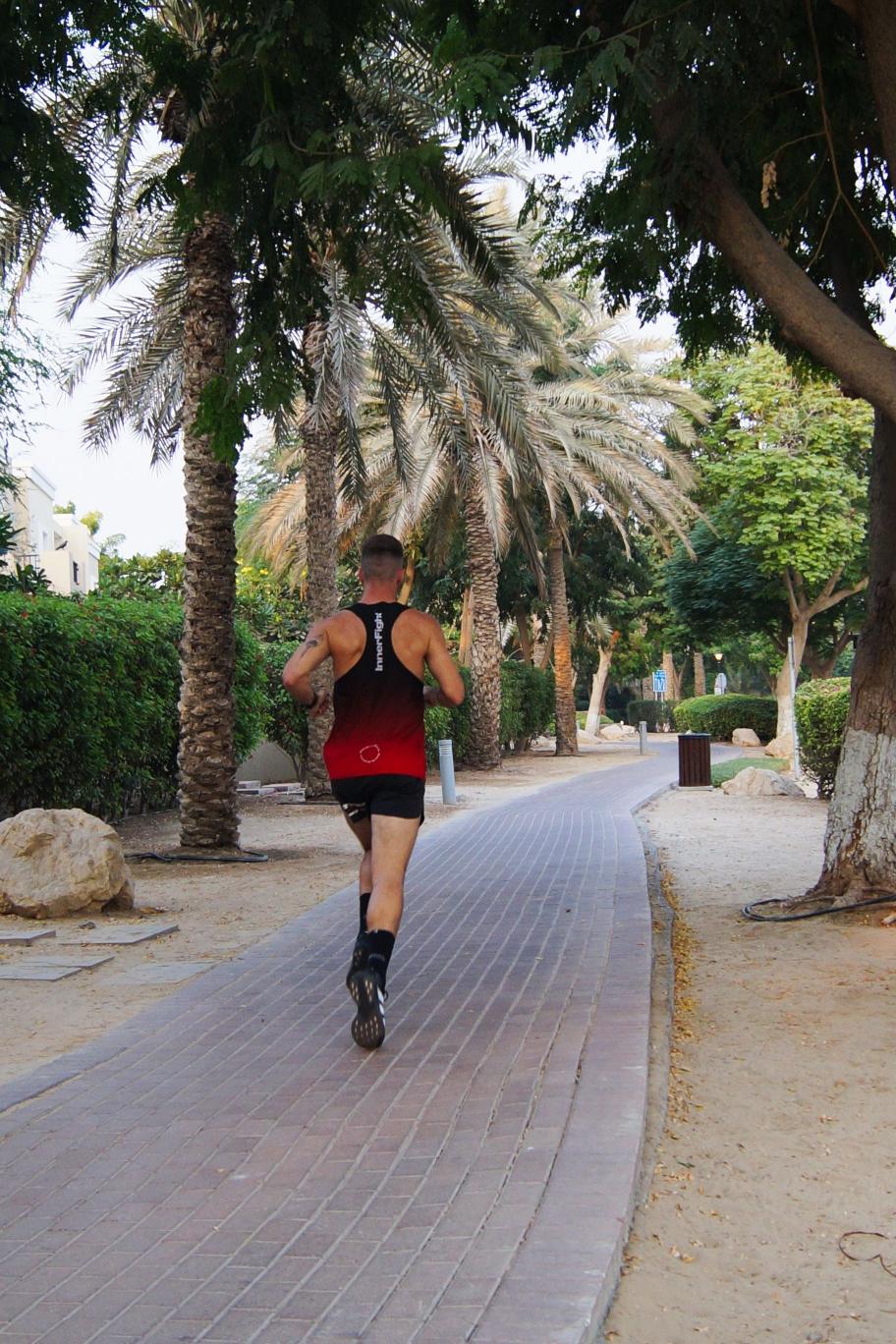Rowing machines: a complete guide
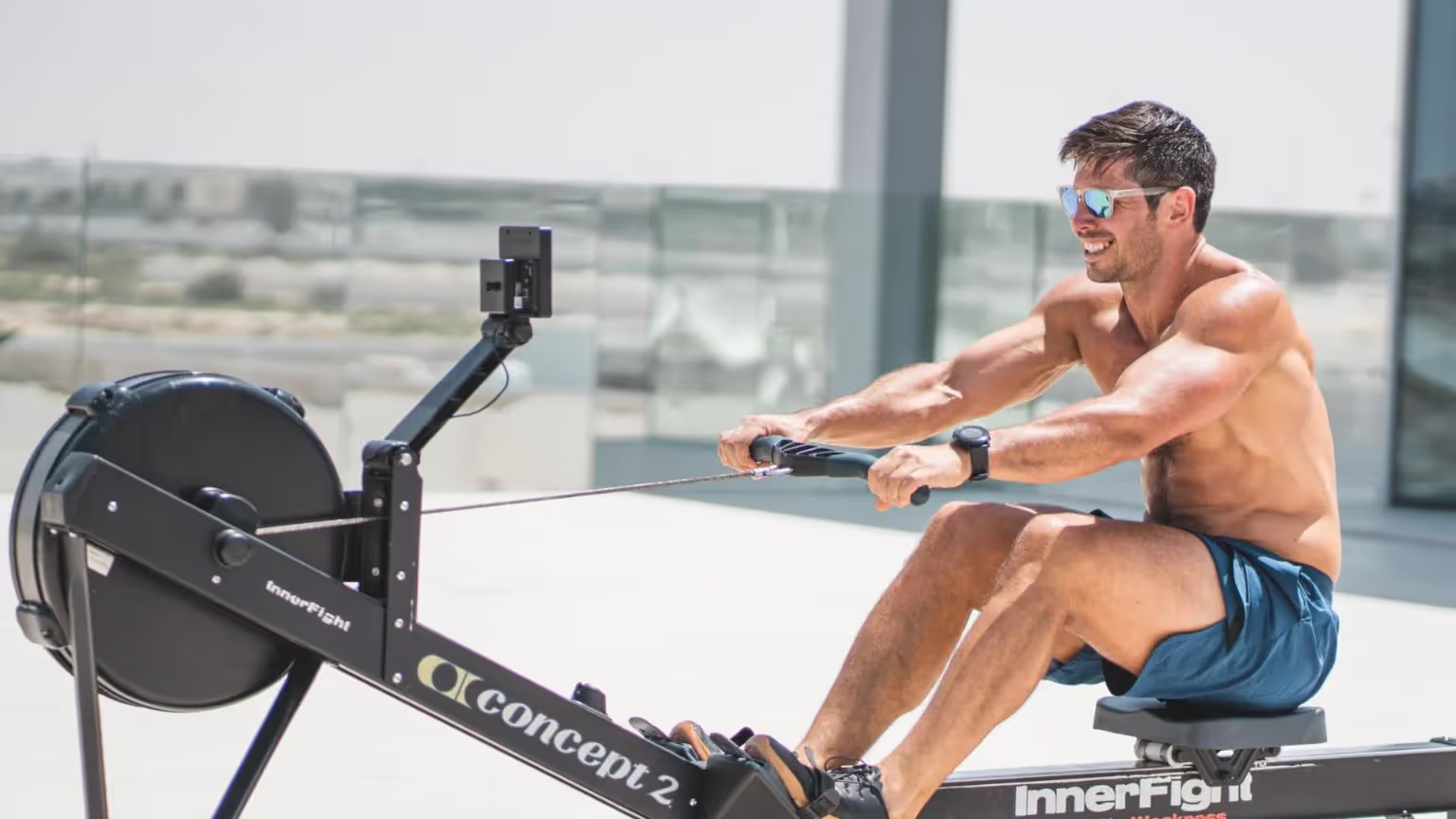
Rowing has been a big part of my training programme for nearly 15 years now. It all began when I started working with the South African rowing team whilst they were preparing for the 2008 Olympics. Pretty cool right!?
Long story short, one of the guys on the team challenged me to a 2000m race and I ended up rowing it in 6:57 which I was told was actually not half bad for a first attempt.
I still remember getting off the rower and feeling that total body pump; my legs were gone and I was walking like Bambi (if he had played rugby).
Needless to say, I was hooked! Since then, rowing machine workouts have been a huge part of my programming for a number of reasons which I will outline in more detail shortly.
Looking back at my experiences with rowing machines, I’ve had to learn to enjoy it. Whether it’s rowing for short distances or longer ones, I have found ways to always keep things interesting and “fun.” It certainly makes things so much easier when the going gets tough!
So where and how does rowing fit into your training? Let’s start with a look at the benefits.
What are the main benefits of rowing machines?
Rowing allows you to do low impact, total body workouts. If you’re coming back from an injury, you can still train hard without the pounding your joints would get from activities such as running.
Research has shown that it engages more than 80% of your muscles, which makes it a very efficient and effective tool for both athletes and the general population.
Once you understand how to use the drag factor on the rower you can then start to focus on developing some power and acceleration in your rowing stroke which will have a cross over to activities with similar movement patterns.
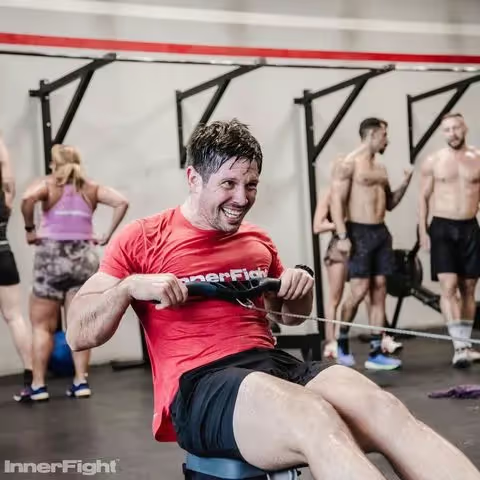
It’s a great way to add some volume to your training without burning out. The low impact nature of rowing and the fact that you can easily monitor your intensity limits overtraining.
Rowing can be meditative, it’s very easy to just settle into a rhythm and row. But this only really happens once you understand how to row properly.
It’s a great way to train your pain tolerance, especially during +90% effort training pieces. You’ll find yourself having to dig deep and work through the muscular burn that hits your whole body.
Rowing can be done in a competitive environment like a class, indoor competition or, as we have seen through 2020, a virtual competition. You get instant feedback from the rower on things like your power, speed, stroke rate and drive length. This allows you to make subtle changes while you are training, so not only do you work harder but you also train to be more efficient.
For anyone who does some form of endurance training like running, cycling or swimming, adding rowing lowers the repetitive stress that you are putting your body through and while still giving you another physical challenge.
Rowing, like most training modalities, allows you to develop different energy systems, making you an even more well-rounded athlete!
What are the disadvantages of rowing machines?
Easily the biggest disadvantage of rowing machines is that they’re very boring. After all, you are sitting on a piece of equipment with a single function endlessly repeating the same range of motion.
There are ways to combat this, like listening to music or doing HIIT sessions so you can at least get up and move around – but for the majority of the time on a rowing machine you’re locked in with nowhere else to go.
Also, if you’re new to using rowing machines and haven’t taken the time to develop proper form and technique, this repetitive motion can quickly lead to lower back problems.
How often should you use a rowing machine?
How often you use a rowing machine really comes down to intensity. If you go 100% effort each and every day, sooner rather than later you’re going to completely burn out and most likely risk serious injury.
As a general rule of thumb, if you’re a beginner then perhaps 2-3 times a week with adequate rest in between sessions will allow enough time for your body to fully recover. As your fitness develops, you can progress from 3-4 times per week up to 5-6 times per week which will really help you to build endurance!
How long should you workout on a rowing machine?
Again, this depends on intensity but also on your fitness goals.
If you’re looking to develop your basic level of fitness then around 20-30 minutes per session at a moderate intensity or 10-15 minutes at a high intensity is a good baseline.
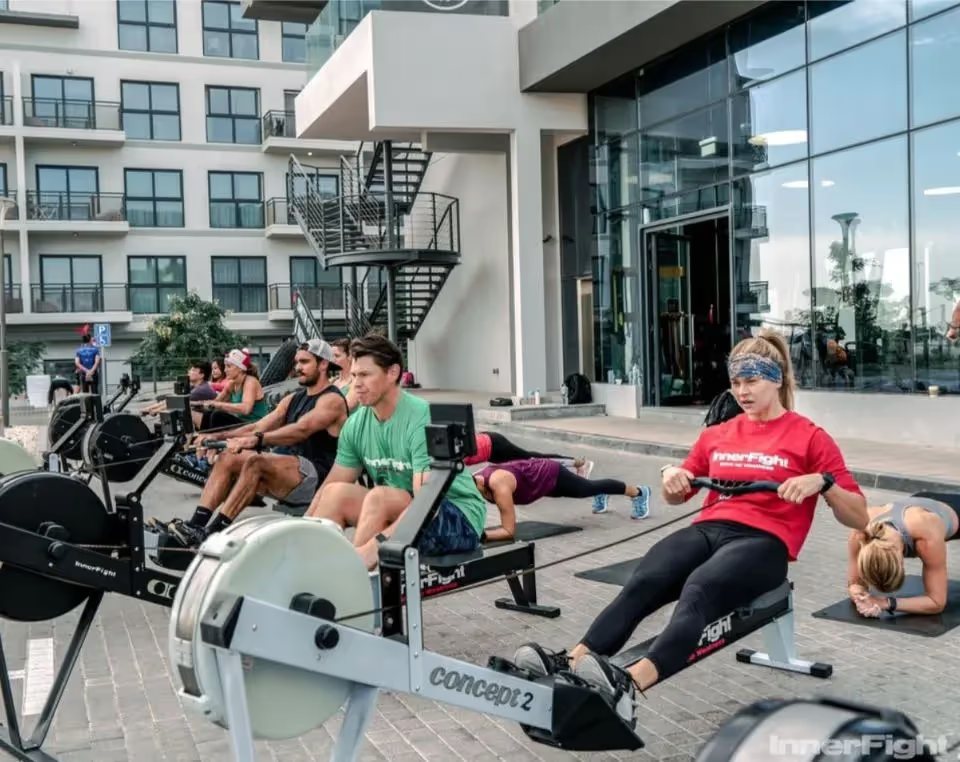
If you’re looking to lose weight then the longer you stay on the machine, the more calories you’ll burn. For advanced athletes, you can supplement long stints on the rowing machine with HIIT style workouts to add some variety and push your limits!
How do you use a rowing machine with proper form?
There are two phases when using a rowing machine – the drive and the recovery.
For the drive, the main focus is pushing with your legs while maintaining core stability and pivoting at the hips, not arching your back.
For the recovery, you’re looking to complete the drive but in reverse – moving back to the start.
This is the movement pattern to remember: legs, body, arms, arms, body, legs. Around 60% of your power should come from your legs, 30% from your body and 10% from your arms.
How to implement rowing machine workouts into existing fitness programs
If you are someone who trains hard in some way on a weekly basis, then you could definitely benefit from doing some slower, more controlled pieces on the rowing machine. Learning to work at a steady state and developing your aerobic base will in turn increase your aerobic capacity.
For training like this I would recommend using a heart rate monitor to help you keep the intensity low. Use the Maffetone Method by subtracting 180 from your age and then work at that intensity level.
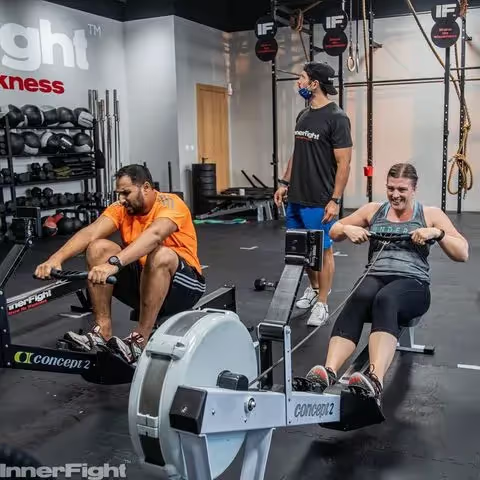
Change the monitor on the rower to show watts (I know that this will be pretty much alien to everyone unless you are a cyclist), the reason for the change to watts is so that you don’t get distracted or fall back into the trap of targeting splits. The addition of this type of training to your schedule is to prevent you burning out but still allowing you to get in some training.
Further, with an increase in aerobic work, you’ll begin to better utilise fat as a fuel source. And while a lot of us train for performance reasons, many of us also do so to maintain a certain aesthetic factor and feel and look our best.
There’s a reason that the aerobic system is the biggest in the body; fat as an energy source can keep us going for longer – so why not train your body to tap into this? As a result, you will find that you become more efficient in utilising your different energy systems, which will make you more resilient to the type and amount of training you put your body through.
Closing thoughts
Unless you plan on becoming a full-time rower, all you need to do is begin in a way that can supplement your current programme and goals. The benefits of rowing are extensive, but the same can be said for most other forms of training, the key is to get the right balance with your volume and intensity of training that you do on a weekly basis.
Keep focusing on your weaknesses and be prepared to put in time doing things like building your aerobic capacity or developing your power and strength.
If you are interested in discussing how you can incorporate a rowing programming catered to your goals – whether it be in the realms of CrossFit, running, cycling or just general training, then all you have to do is ask and we can get you set up with a consult and, of course, a rower!
Contact me by email via am@innerfight.com




.jpg)

.jpg)
.avif)
.jpg)
.avif)
.jpg)
.jpg)
